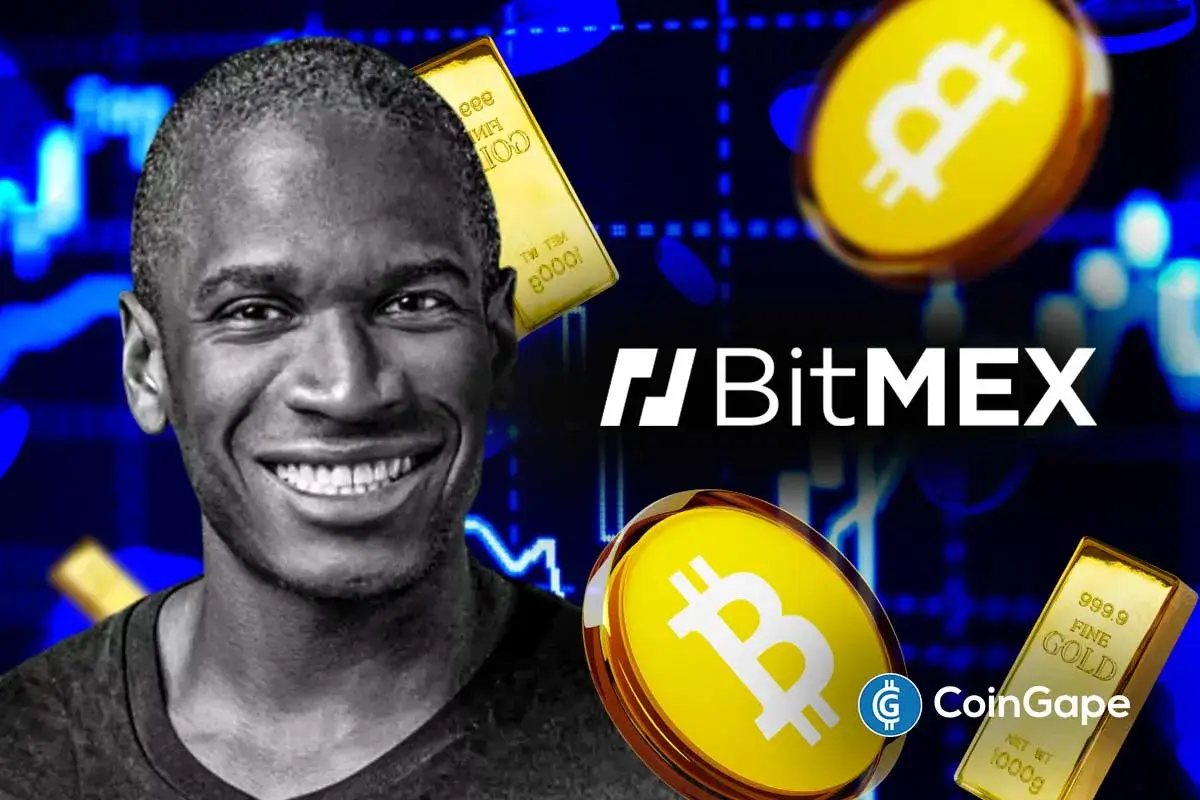Bitcoin vs Gold: BitMEX Co-Founder Arthur Hayes Explains Why Nations Still Prefer Buying Gold

Highlights
- Arthur Hayes says tight U.S. liquidity, not weak fundamentals, caused Bitcoin’s decline.
- Hayes also said nations still trust gold for stability while Bitcoin’s self-custody offers future benefits.
- According to Hayes, the switch to yuan for oil transactions is a sign of the increasing value of Bitcoin and gold.
Bitcoin (BTC) may be the future of money, but according to BitMEX co-founder Arthur Hayes, most nations still trust gold. Even as Bitcoin crosses $100,000, critics like gold advocate Peter Schiff continue urging investors to sell, warning that the rally may not last.
Hayes Blames U.S. Credit Stress For Bitcoin’s Latest Drop
In a recent discussion, Hayes said that Bitcoin and gold share similar inflation and dollar-debasement stories. He explained that the latest drop in Bitcoin was tied to a tightening in U.S. credit markets.
The Secured Overnight Financing Rate, or SOFR, has recently traded above the Federal Funds rate. That, he said, signals stress in the U.S. money markets and explains why liquidity has been drying up.
Hayes believes the Federal Reserve will soon end its quantitative tightening program as banking reserves fall and the market demands more cash. According to him, this liquidity crunch led Bitcoin to fall sharply.
He called it a “wake-up call” that the dollar is tight, not a rejection of Bitcoin’s long-term thesis. Similar optimism has been echoed by Binance founder Changpeng Zhao. Recently, Zhao predicted that Bitcoin would flip gold in market capitalization one day.
Hayes said both BTC and gold will eventually benefit from the same macro story (the weakening dollar and inflationary policy). But the timeline for national adoption differs.
Nations Trust Gold, But Bitcoin Is Gaining An Edge
Hayes pointed out that sovereign countries prefer gold because it carries less political and market risk. He said central banks understand gold’s long history as a trade and reserve medium, which stretches back thousands of years.
By contrast, BTC’s volatility makes it risky for governments that need to maintain stable import and export operations. “They could lose their jobs if Bitcoin dropped 75%,” Hayes said. “Retail people like me can buy Bitcoin. Sovereign nations buy gold.”
Yet, some analysts see a turning point ahead. Hence, they are urging investors to sell gold and buy Bitcoin. The BitMex co-founder added that the gap between the two assets will eventually narrow.
Bitcoin’s ability to be self-custodied, he noted, gives it an edge over gold held in foreign vaults. Institutional conviction also continues to rise. For instance, Strategy Inc. aimed to buy more Bitcoin by raising $715 million through preferred stock
The BitMex co-founder cited the example of Venezuela’s gold reserves seized in London, warning that physical gold can be confiscated or frozen. Bitcoin, however, can be moved instantly and stored securely without third-party control.
Hayes Links Yuan Oil Trades To BTC’s Future
Hayes also linked the global shift in trade to this broader theme. He mentioned that Saudi Arabia and China recently completed oil trades settled in Chinese Yuan, signaling a slow move away from dollar dominance.
For Hayes, this trend reinforces why both gold and BTC will remain critical in the coming years. “Gold will lead for now,” he said. “But Bitcoin will follow once the world understands its power.”
Hayes’ comments arrive amid renewed gold-versus-BTC debate sparked by market skeptics. Most recently, veteran gold advocate Peter Schiff mocked the rise of BTC above the $100,000 mark, declaring it to be a one-time only influx of selling the asset.
His sarcasm reflects the age-old division between those who support the gold and those who support this digital asset. Schiff is confident that the rally of Bitcoin is unsustainable. In contrast, Hayes is sure that the asset will increase in value over the long term when the global money flows cease to depend on the U.S. dollar.
Play 10,000+ Casino Games at BC Game with Ease
- Instant Deposits And Withdrawals
- Crypto Casino And Sports Betting
- Exclusive Bonuses And Rewards

- Why Is Crypto Market Crashing Today (Feb 28)
- Breaking: Ethereum Price Drops Amid Israel-Iran Tensions; Machi Big Brother Liquidated Again
- CLARITY Act: Stablecoin Yield Debate Heats Up, but March 1 Deadline Not ‘Do or Die’
- Best Institutional Custody Solutions for Tokenized Assets in 2026
- Minnesota Considers Ban on Bitcoin and Crypto ATMs as Scam Reports Rise
- Top Analyst Predicts Pi Network Price Bottom, Flags Key Catalysts
- Will Ethereum Price Hold $1,900 Level After Five Weeks of $563M ETF Selling?
- Top 2 Price Predictions Ethereum and Solana Ahead of March 1 Clarity Act Stablecoin Deadline
- Pi Network Price Prediction Ahead of Protocol Upgrades Deadline on March 1
- XRP Price Outlook As Jane Street Lawsuit Sparks Shift in Morning Sell-Off Trend
- Dogecoin, Cardano, and Chainlink Price Prediction As Crypto Market Rebounds

 Buy $GGs
Buy $GGs
















